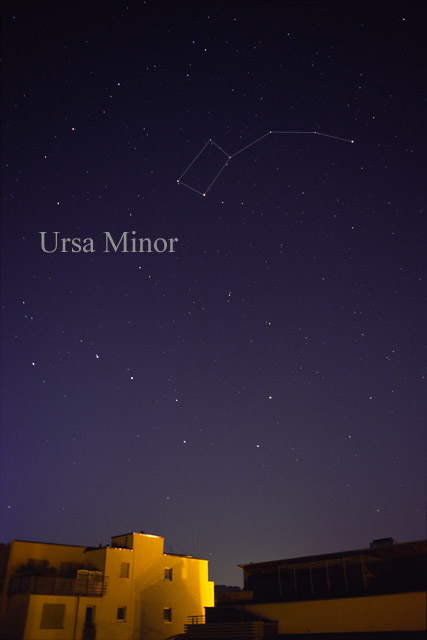We learned before about the constellation the Big Dipper.
Let's learn about some more constellations!
The constellation of Orion looks like a person, and if you connect the dots
and use your imagination you might be able to see someone who is hunting with a bow and arrow.
In old Greek stories (called mythology) Orion was a great hunter.

(from: wikipedia - orion constellation)
The best way to find Orion in the sky is to look for three stars together, these are part of Orion's belt.



